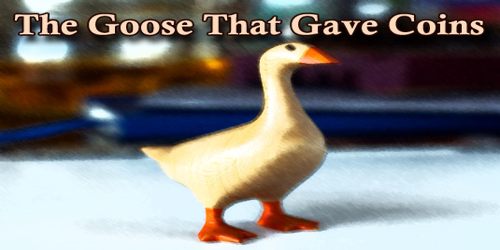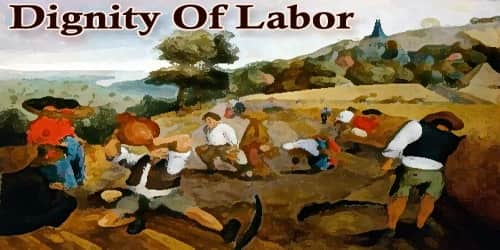Once upon a time, there was a poor peasant whose most prized possession was a big fat goose. One day, to his wife’s dismay and astonishment, he announced that he was going to give it away. “What are you thinking?” his wife cried. “We have children to feed. How can you give away the only thing we own?”
“Never mind,” said the poor peasant, giving his wife a wink. “You must trust me. I have an idea.”
That very afternoon, he took his goose with him and set off to visit the town merchant. When he arrived, he offered the merchant his goose.
“I thank you very much,” the merchant said when he received his gift. “But tell me, good man, how would you suggest I divide this goose? I have a wife and two sons and two daughters.”
The peasant smiled. “Very simple,” he said. “You are the head of the house, so you must have the head of the goose.”
“And my wife?” the merchant asked.
“She sits upon her chair and oversees your household, does she not?”
“That she does,” the merchant said.
“It’s obvious, then,” the peasant answered him. “She shall have the tail.”
The merchant smiled at the poor peasant’s wit. “And my sons?” he asked.
“Ah,” said the peasant, “they each shall have a leg, for it is their task to use their limbs to walk in their father’s footsteps. And your daughters will each have a wing because one day before too long they will fly away from home to live in the homes of their husbands.”
“And the body?” asked the merchant.
“Ah, that I shall keep,” said the peasant, “for those who give gifts must also receive.”
The merchant laughed. “Thank you for making my day more pleasant,” he said, and he sent the peasant home with his goose and a bag full of money.
When the peasant returned home and told his wife the tale, she could not believe her ears. “What good fortune,” she said, and she quickly ran to tell her neighbor, for she was a talkative woman, and much as she liked to complain, she was happy for a chance to brag to her neighbor, who had for years flaunted her wealth.
“My husband gave a goose to the merchant,” said the wife. “And he was so grateful; he rewarded us with a sack full of coins.”
The neighbor’s wife ran to her husband. “We must take a goose to the merchant,” she said. “Our neighbor won a bag of coins for giving him a goose.”
The rich peasant frowned. “We cannot let him outdo us,” he said. “I shall take the merchant five fine geese, and we’ll see who is to be rewarded.” That very evening he took five geese the family-owned, put them in a crate and went to see the merchant.
“I’ve brought you five geese,” he said proudly.
“And how do you suggest I divide five geese among the six members of my family?” the merchant asked.
“Well, then, let’s see,” said the neighbor, scratching his head. He thought and thought, but no matter how hard he thought, he could not imagine how to fairly divide five among six.
The merchant sent for the poor peasant. “Can you tell us how to divide these five geese among my whole family?” he asked.
“Easy indeed,” said the poor peasant. He picked up one of the geese and handed it to the merchant. “This one shall be for you and your wife, and that will make you three.” He picked up another goose and handed it to the two sons. “Now you are three,” he said to the boys. And he picked up a third goose and handed this one to the daughters. “And you two have also become three,” he said.
Everyone smiled, but the neighbor looked at the two remaining geese. “And what of these?” he asked.
“I shall take those,” said the poor peasant, “and that will make us three as well.”
The neighbor was horrified. “What about me?” he asked.
The merchant laughed. “Perhaps in the future, you will not be so quick to envy your neighbor,” he said, and he sent the man on his way with no geese and no coins and only a hard-won lesson.
















